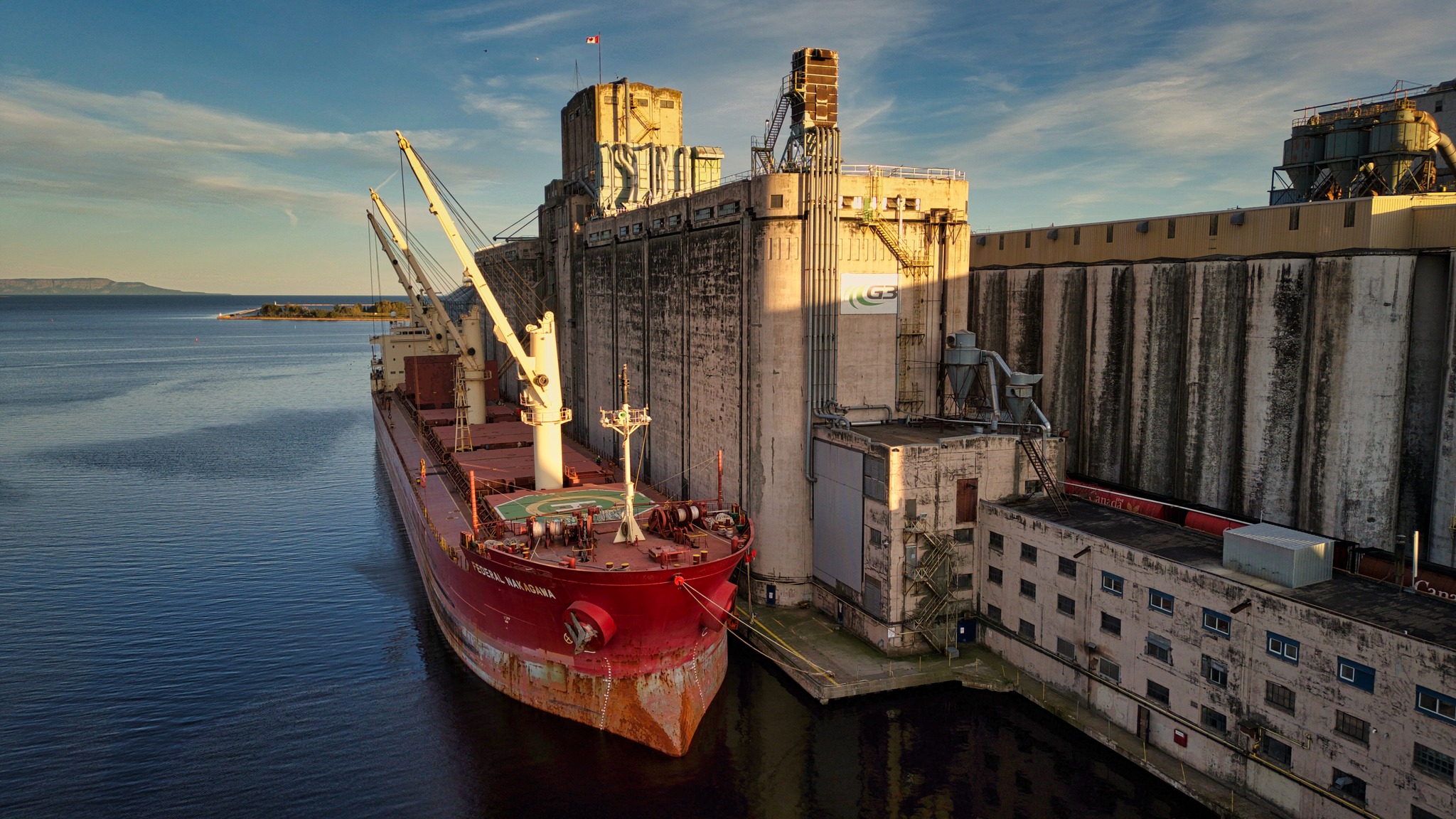Early tonnage figures show a strong start for the 66th navigation season on the St. Lawrence Seaway – demonstrating the resilience, predictability, and sustainability of the binational system.
Fleet positioning due to low winter ice coverage on the Great Lakes jump-started grain and potash traffic. Canadian and U.S. grain totals increased by 39,000 metric tonnes over the previous year, totaling approximately 1.21 million metric tonnes to date.
Similarly, potash traffic posted an increase of 83,000 tonnes, bringing the total up to 110,000 metric tonnes to date. Potash, which includes various mined and manufactured minerals that contain potassium in water-soluable form, is used in fertilizers to support plant growth, increase crop yield and disease resistance, and enhance water preservation.
“Our dedication to investing in infrastructure renewal lays the foundation for the Seaway’s exceptional reliability. This is critical because marine transportation is the most fuel-efficient and cost-effective method to transport goods,” said Terence Bowles, President and CEO of the St. Lawrence Seaway Management Corporation. “A recent study showed the marine industry in the Great Lakes/St. Lawrence Seaway region supports almost 360,000 jobs and generates $66.1 billion dollars (CAD) in economic activity.”
Ongoing winter maintenance investments on the part of the Canadian St. Lawrence Seaway Management Corporation (SLSMC), and the U.S. Great Lakes St. Lawrence Seaway Development Corporation (GLS) assure a constant state of readiness, and an exceptional level of reliability. SLSMC invested approximately $379 million (CND) from 2019 to 2024 on infrastructure renewal projects on Canadian-held assets, while GLS made comparable investments on U.S.-held assets totaling $225 million (USD) in such projects since 2009.
In addition to operating a safe, reliable, and efficient binational waterway and lock system, the SLSMC and GLS are also working together, in partnership with industry stakeholders, to develop a Green Shipping Corridor Network Initiative, demonstrating a commitment to sustainability, driving collaborative efforts on decarbonization, and shaping a sustainable future for the marine sector.
“The Great Lakes and St. Lawrence Seaway System is vital to the health of the North American economy, the strength of our supply chains, and the quality of our very way of life,” noted Adam Tindall-Schlicht, Administrator of the Great Lakes St. Lawrence Seaway Development Corporation. “We appreciate the tremendous responsibility that comes with the operation of this vital infrastructure, and meet it every day with planning, dedication, and ongoing investment to surpass the expectations of businesses and consumers who rely on us every day. I thank our team and our partners for their continuous efforts and wish all users of the Seaway a successful shipping season.”
Tonnage statistics for the month of May will be issued shortly and are expected to demonstrate positive trends leading into the first part of the navigation season on the St. Lawrence Seaway.
(Photo of Port of Thunder Bay by Michael Hull)


